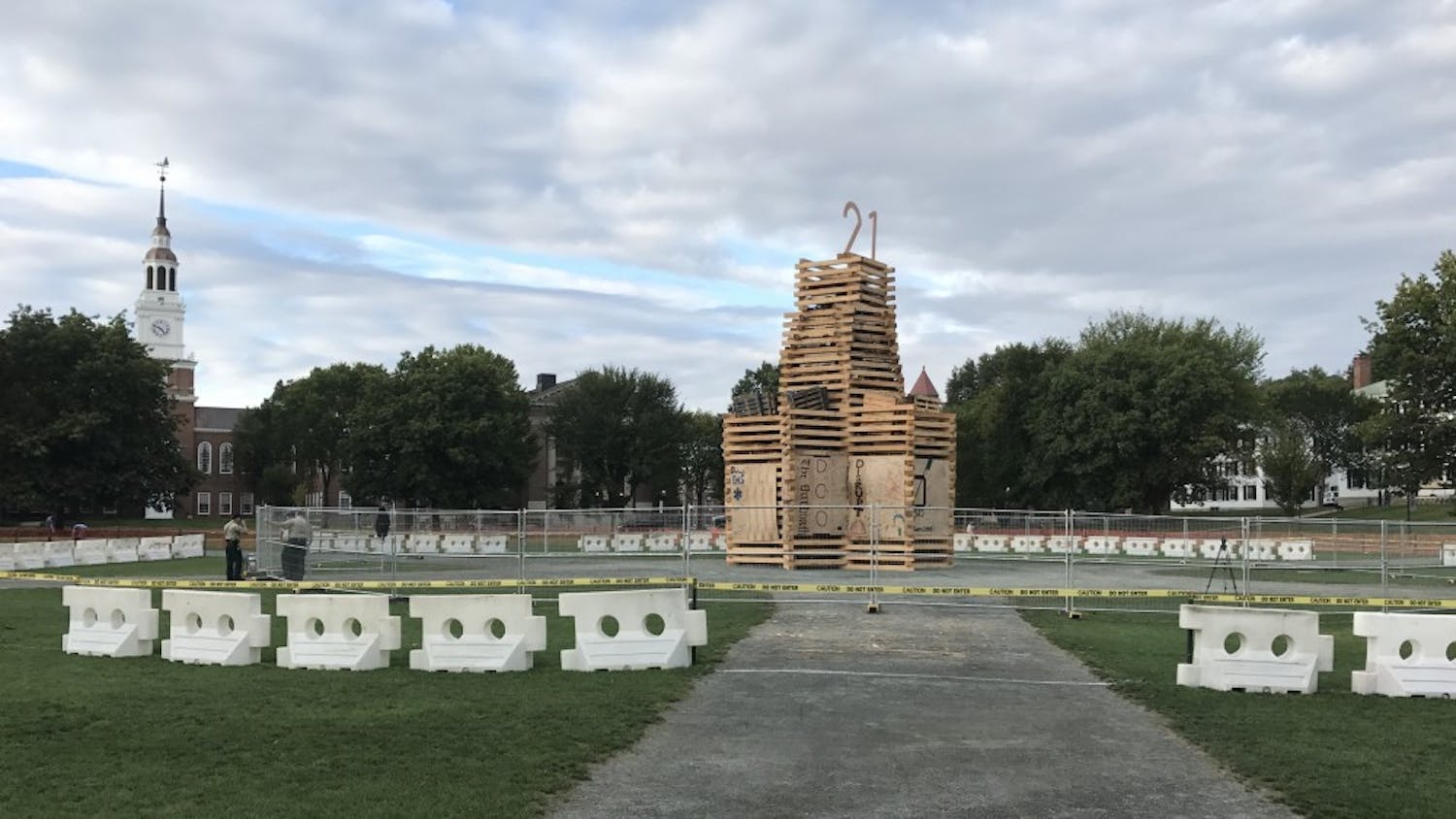Homecoming weekend is upon us, and it is the second year in which Dartmouth freshmen are walking around the bonfire instead of running. Though some upperclassmen still miss the thundering laps of old, two years from now, every Dartmouth student will have only ever walked around the fire. The Dartmouth Opinion section responded.
If traditions can change every four years or otherwise, what value do they hold? Why is the Dartmouth community so fond of them? Are they?
Traditions hold value because they act as the cultural glue that holds groups of students together, establishing a sense of community. That being said, although walking around the bonfire last year was certainly anticlimactic, the importance of traditions has to do less with the actual enactment and more with the sentiment and feeling that surrounds the act.
Thus, the bonfire still holds value as a bonfire, whether or not we walk around it or run. Believing that traditions are no longer valid if they change is an unrealistic and unprogressive mindset. At the end of the day, change is what keeps traditions alive and relevant.
- Gabrielle Levy ’22
Running around a large bonfire at night is, on its surface, a very unwise idea. Doing stupid things for the sake of it isn’t unique or very interesting — it’s just stupid. The whole point of traditions is to create community through shared experiences and memories. We will still have a ceremonial induction even just walking around the fire — I’m sure I’ll remember walking around a fire with all the members of my class, even if nobody runs 23 laps around the bonfire or touches it.
- Maxwell Teszler ’23
A tradition in flux is a tradition no longer. The moment that one dares to reform or amend such a previously heralded practice, it ceases to be exactly that, becoming a rote and meaningless action. For the historic salience of tradition stems directly from its continuity. The more that Dartmouth opts to adulterate our admittedly cultish procession about the fire, the longer it will take for some semblance of “tradition” to set in.
- Nicholas Bartlett ’21
Dartmouth seems to care about addressing and maintaining the traditions that make us appear to be a unified campus from an outsider perspective. Traditions like the Homecoming bonfire and Trips are all part of the outward projection of a campus with traditions that unite the student body. One would hope that each new generation of Dartmouth students would create new traditions of their own and rebel against the more problematic practices of the past, but more often, it seems that the exclusive and hierarchal groups we cultivate do nothing more than recycle the problems of the past.
- Theodore Hill-Weld ’20
While longevity is important for a tradition to hold value over time, longevity is by no means the sole arbiter of value. Who cares if freshmen ran bonfire laps since 1888? Some traditions just deserve to die.
I can think of a handful of practices that have ended, for which some students fought to resuscitate and resurrect, whose death has made Dartmouth all the better. The repugnant Dartmouth Indian mascot quickly comes to mind. And that’s to say nothing of Dartmouth’s unimaginative and rather chintzy traditions, such as the Dartmouth Seven, which is more myth than they are practice.
This is not to say I agree with the town of Hanover or the College on the bonfire’s supposed safety issues. Bonfire running was good, lighthearted fun, amusing in its simplicity, yet daring in its purpose — to have made us “true freshmen,” even though we had been in classes for some weeks by then. But its loss is easily forgettable, overshadowed by Homecoming weekend’s chocked schedule of more engaging and spectacular sights: the football game, tower tours, reunions. To stand around the warmth of the immense bonfire is memorable enough for a Friday night. It’s time we leave bonfire running in the past. Let’s find a new flame.
- Tyler Malbreaux ’20



